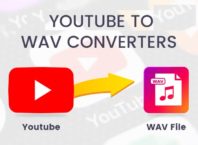The church is still an essential part of many Americans’ lives. Eighty percent of churches offer multiple services a week. The average number of people who regularly participate in a church’s services totals over 1,350.
The modern church is vibrant. Yet, many churches do struggle to grow their congregations. They wonder how they can compete with online resources to draw people into their establishments.
If you can’t beat the Internet, you should join the Internet. Modern technology offers many tools to interact with old congregants and reach out to new ones. You just have to know what those tools are.
Get the facts, then get started building your modern church. Here is your quick guide.
Contents [show]
The Advantages of Church Technology
The purpose of technology is to make things easier. It can automate certain processes while providing clear databases for other ones.
Technology saves a lot of time by doing this. You don’t have to keep track of attendance or volunteers on a piece of scrap paper. You can type information into a document or a computer program, and it is logged automatically.
You can communicate with people. Videoconferencing and social media platforms let you interact with your congregants while they remain at home. You can send out important materials in an email.
If you need to make quick changes, you can also use technology. You can tweet out a change to a schedule. You can edit your website from your phone.
There are many platforms to collect donations and tithe payments. Collecting dollar bills and coins requires volunteers, a lockbox, and time to count it all out. Collecting electronic donations puts everything on a secure Internet platform.
You can extend the reach of your church. If you want to grow your congregants, you can promote your goals through social media.
More than one-third of Millennials are unaffiliated with any religion. Even more Millennials do not attend regular church services. Starting social media accounts lets you court young people and encourage them to come to church.
You can also use social media to remind people of important messages. Anything can happen in between church services. You can offer a little bit of support and inspiration through a Bible verse you share over your pages.
Basic Ministry Tools
The first piece of software any church should have is a computer. It can be from Apple or Microsoft, and it can be a desktop or laptop. It should have access to the Internet and storage capability for many applications.
You can create a public wi-fi spot. This would allow your congregants to use technology in church. But this may cause a distraction, especially if you have many young congregants.
You should create Facebook, Twitter, and YouTube pages for your church. You should post on Twitter daily and on Facebook weekly, at a minimum.
Produce content that matters to your congregants and community. Share sermons, Biblical verses, and important news articles. You can advertise an event or two, but try to produce more informational and important material.
Many churches use their YouTube accounts to upload their Sunday services. You can provide recordings of your services, but try producing distinct videos. Record informative videos on historical study and literary techniques of the Bible.
Some churches have public access television shows. Though public access is not as popular as it once was, many older people still watch it. Consider using it to broadcast your services or give brief messages to older members.
Virtual Worship
Many churches are live-streaming their services. This allows congregants to attend at home.
YouTube has a live-streaming function, so you can stay on the platform if you want. You will need to download some software and connect a camera to it. You can use a computer webcam or a more advanced device.
If your Facebook page is popular, you can use Facebook Live. It is a live-streaming service that is very similar to YouTube’s function. You can stream directly onto your page, allowing your followers to watch.
If you have a small congregation, you can use Zoom. You can broadcast the service or sermon within a private group. Mute the congregants as they arrive, so they don’t accidentally interrupt.
Advanced Church Software
Once you’ve started using the basic tools, you can move into more advanced ones. Every church should have its own website. WordPress, Squarespace, and Weebly all offer cheap tools to build one.
Your website does not have to be fancy. You want to describe what services you offer, when services are, and who you are. Feel free to write a blog with informative expositions on sermons and church material.
Icon Church Management offers a package of programs that any church can use. You can manage IRS donor statements, track accounting documents, and communicate with individual groups. If you want to create profiles of individuals, you can do so within the program.
You can develop or use an app. Apps already exist with full versions of the Bible and important religious texts. You can ask your congregants to download those and follow along on their phones.
Building the Modern Church
You can construct your modern church one click at a time. Church technology automates attendance and payment procedures. It lets you reach out to young people who may not be interested in your services otherwise.
Get a computer, then start social media pages. Post regular amounts of high-quality content. Live-stream your services so people can follow along at home.
Build a website to describe the distinctions of your church. Consider some advanced tools to track your accounting process and provide information to congregants.
Technology motivates religion, society, and business. Follow our coverage for important technology guides.












